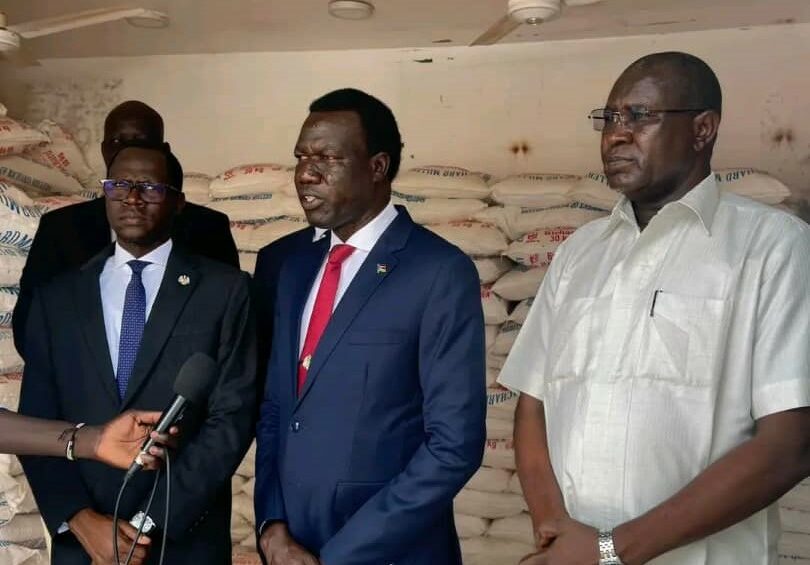
First Undersecretary in the Ministry of Trade Kuol Daniel Ayulo speaks to the media on Wednesday. (-)
An economist criticized government’s economic relief initiative of importing subsidized food, suggesting that the only way to ultimately beat inflation is providing a stable environment and boosting agriculture.
Dr. Abraham Maliet said the purchase of food items is unsustainable and a drop in the ocean due to the worsening economic downturn.
Dr. Maliet recommended the procurement of farming tools and equipment to support agricultural production.
“How long do you want to do that? If you go and bring 10,000 bags of maize flour, is that going to sustain? That money you give it to import food, why don’t you put them in agriculture?” he said on Eye Radio’s Sundown Show.
“Why don’t you buy tools (equipment)? Why don’t you encourage these people and say 2024 is a year of farming? Everyone must farm. These are the tools. That money you went and bring 10,000 bags, it’s just a drop in the sea.”
On March 6, 2024, the National Ministry of Trade and Industry officiated new branches of food stores selling maize flour in Juba to enable the public to buy food at subsidized prices amid soaring inflation.
The ministry said, the initiative serves as a short- and long-term solution to curb high prices of essential goods in the market and that the same initiative will also be extended to the states in a few weeks’ time.
But Economist Dr. Maliet said the subsidized food will not provide any long-term solution and calls for the procurement of farming tools to support agriculture in the country.
According to him, the money used to import food should be diverted to the purchase of farming equipment.
“Hunger is continuous. So, for you want to stop people from going hungry, you must show them how to fish, not giving them the dead fish.”
The South Sudan Minister of Agriculture and Food Security said in May 2023 that the government was working to prioritize agriculture and other productive sectors to revive the economy.
Josephine Lagu said the country must tape into its other natural resources and end dependence on oil revenue. But up to the moment, the promised has not been implemented.
Support Eye Radio, the first independent radio broadcaster of news, information & entertainment in South Sudan.
Make a monthly or a one off contribution.
Copyright 2024. All rights reserved. Eye Radio is a product of Eye Media Limited.